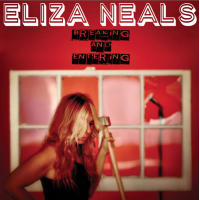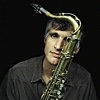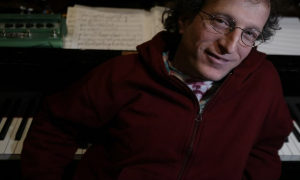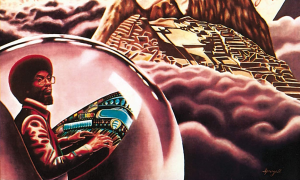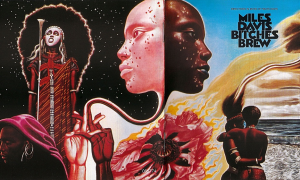Home » Jazz Articles » Rediscovery » Eberhard Weber: Fluid Rustle
Eberhard Weber: Fluid Rustle
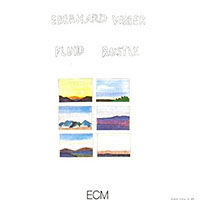 Eberhard Weber
Eberhard WeberFluid Rustle
ECM
1979
Today's Rediscovery, after a bit of a hiatus, looks at an album by Eberhard Weber that is of particularly significance in the German bassist's discography. Fluid Rustle, released by ECM Records in 1979, was, in fact, one of many anomalies in Weber's discography for its unusual instrumentation (electric guitar/balalaika, vibraphone/marimba, bass/tarang, voices); but beyond that, it stands out as the album that introduced guitarist Bill Frisell to the world.
As Frisell explains in a 2001 interview that was ultimately published at All About Jazz in 2011, Bill Frisell: The ECM Years:
"Soon after I got to Belgium, in 1978," said Frisell, "I get a call from Mike Gibbs, who had a tour of England with his own big band, and his regular guitarist, Philip Catherine, wasn't able to do the tour. I had played in Mike's band at school, so I knew the music, so he called me and asked me if I could do his tour. There were a lot of British musicians in the band, like [drummer] John Marshall and [trumpeter] Kenny Wheeler and [saxophonist] Charlie Mariano. Eberhard Weber was playing bass, so I was kind of thrown in with a lot of the guys I had been listening to already.
"It was just an incredible opportunity for me to be able to play with all these guys," Frisell concluded. "So, during that tour, there was a little area every night where Mike Gibbs let Eberhard and me play some free improv, and it really felt great; it felt like we were connecting—there'd be moments where it lifted off, with just two of us playing. This was in October or something, of 1978, and Eberhard had this recording coming up with Gary Burton that was going to be Fluid Rustle. Man, I couldn't believe it; I had done a couple little recordings in Belgium, but nothing that was a big recording. That was how I met [ECM label head/producer] Manfred Eicher the first time, and I think I was so terrified of the whole thing, I didn't know what I was doing. Even traveling and staying in the hotel, I didn't know what to do; I didn't even know how you checked into a hotel or anything. And I wasn't able to get much going; I was pretty inhibited during that recording."
And while it is, indeed, true that Frisell's playing is somewhat tentative on an album of largely introspective chamber jazz that also features singers Norma Winstone and Bonnie Herman, vibraphonist/marimbaist Gary Burton and, of course, Weber, using his custom-built five-string electric double bass. Still, hearing the album when it was first released, I couldn't help but feel that this guitarist, whose name was new to me, was someone well worth watching.
How right I was. That feeling was quickly justified over the course of the next few years as Frisell—playing again with Weber on his equally impressive Later That Evening (ECM, 1984), recording and touring with ECM label mate/Norwegian saxophonist Jan Garbarek (1983's Paths, Prints and 1984's Wayfarer, the subject of another Rediscovery column), and appearing on a blistering live set with yet another ECM artist, Norwegian bassist Arild Andersen (1982's Molde Concert—grew in leaps and bounds, even releasing his own solo debut for the label in 1983, In Line, and quickly becoming the idiosyncratic, instantly recognizable guitarist who has, in the ensuing years, become one of the most influential of his generation.
But at the time of Fluid Rustle, Frisell had yet to gain the confidence he needed to truly stand out. Still, his solo in the buoyant middle section of the title track was more than enough to suggest a new guitar hero in the making. With a dark, brooding introduction,"Fluid Rustle" also features a characteristically perfect solo from Burton, whose playing throughout the album is a revelation. Outside of his duo with pianist Chick Corea—whose ECM recordings are documented on the label's 2009 Old & New Masters Edition box set, Crystal Silence: The ECM Years 1972-1979—Burton was, at the time, rarely heard outside of contexts with a conventional bass/drums rhythm section, making Fluid Rustle an anomaly in the vibraphonist's discography as well.
Weber had, by this time, already experimented with contexts beyond the norm—though it would be misleading to suggest any of his recordings, including his own Old & New Masters Edition box, Colours (2010), which collected the bassist's three recordings featuring his popular Colours quartet—were anything resembling conventional. Still, Weber's The Following Morning (ECM, 1976), which featured the bassist alongside Colours keyboardist Rainer Bruninghaus on a series of original compositions written for bass, piano, cello, French horn and oboe (the latter three instruments performed by members of the Oslo Philharmonic Orchestra), was a clear indicator of the bassist's desire to work in a variety of contexts.
It's a characteristic that continued to define his career right up to his tragic 2007 stroke...and beyond, with his last two recordings (2013's Resume and 2015's Encore) both taking a reverse engineering approach to composition by culling recorded bass solos from Weber's many years as a member of the Jan Garbarek Group and building compositions around them using keyboards (Weber, since the stroke, has sadly been unable to continue playing bass) and judicious use of guests including Garbarek, drummer Michael DiPasqua and flugelhornist Ack Van Rooyen.
Since his award-winning 1974 ECM debut, The Colours of Chloë (which also featured Van Rooyen), Weber has demonstrated a penchant for detailed composition as well as improvisational opportunities, and in particular a disposition towards long-form compositions that often took up the entire side of their original LP issues. While The Colour of Chloë's nineteen-minute "No Motion Picture" reflected Weber's interest in minimalism—and, perhaps, a similar interest in British groups like Soft Machine, whose latter-period drummer, John Marshall, would ultimately join Colours, replacing the group's original drummer, Jon Christensen—Fluid Rustle's side-long opener, "Quiet Departures," was even more episodic in nature...and broad in scope.
Burton's ethereal vibes, Frisell's volume pedal swells and Winstone and Herman's breathy, wordless vocals create a soft cushion over which Weber layer's his beautifully constructed, unusual but still singable bass lines. But that's only one part of a seventeen-minute suite that ultimately morphs, after a gentle solo from Burton, into a more oblique middle section, filled with implication as guitar, bass and voices create collective dissonances, one after the other, ultimately dissolving into silence. Then, with Frisell's strummed balalaika the driving voice (with his electric guitar overdubbed on top), Weber turns more optimistic, with Herman and Winstone delivering a lyrical theme, resolving into a marimba-driven solo opportunity for Frisell that, in its angular approach, foreshadows future successes to come before Weber, as Burton turns to vibraphone, takes a solo of his own that once again demonstrates there is no other bassist in the world that sounds like him either in tone or in the unusual way that he formulates improvisations that feel preconceived...even when they're clearly not.
The rest of the album is equally distinctive and just as appealing as it explores more abstruse yet still somehow melody-driven concerns ("A Pale Smile") and an even darker, foreboding conclusion ("Visible Thoughts"). One of Weber's most memorable albums in a relatively diminutive discography as a leader (just 14 albums in 42 years), Fluid Rustle stands out for both its unusual instrumentation and the debut, at least on an international level, of soon-to-be-major guitarist Bill Frisell.
And with its impeccable production, recorded at Ludwigsburg's Tonstudio Bauer—a regular choice for Eicher at the time, along with studios in Oslo beginning with Bendiksen Studio, followed by Talent Studios and, finally, the two Rainbow studios, the second of which the producer continues to use to this day—Fluid Rustle is an album whose largely atmospheric timbres—grounded by the deep resonance of Weber's bass—sound positively lush on the Tetra 333 listening instruments. Filled with layers of detail that are clearly defined and pristinely presented, they make Fluid Rustle another perfect choice for Rediscovery.
So, what are your thoughts? Do you know this record, and if so, how do you feel about it?
[Note: You can read the genesis of this Rediscovery column here.]
Tags
Eberhard Weber
Rediscovery
John Kelman
ECM Records
Germany
Stuttgart
Bill Frisell
John Marshall
Kenny Wheeler
Charlie Mariano
Gary Burton
Manfred Eicher
Norma Winstone
Jan Garbarek
Arild Andersen
Chick Corea
Rainer Bruninghaus
Michael Di Pasqua
Ack van Rooyen
Soft Machine
Jon Christensen
PREVIOUS / NEXT
Support All About Jazz
 All About Jazz has been a pillar of jazz since 1995, championing it as an art form and, more importantly, supporting the musicians who make it. Our enduring commitment has made "AAJ" one of the most culturally important websites of its kind, read by hundreds of thousands of fans, musicians and industry figures every month.
All About Jazz has been a pillar of jazz since 1995, championing it as an art form and, more importantly, supporting the musicians who make it. Our enduring commitment has made "AAJ" one of the most culturally important websites of its kind, read by hundreds of thousands of fans, musicians and industry figures every month.



